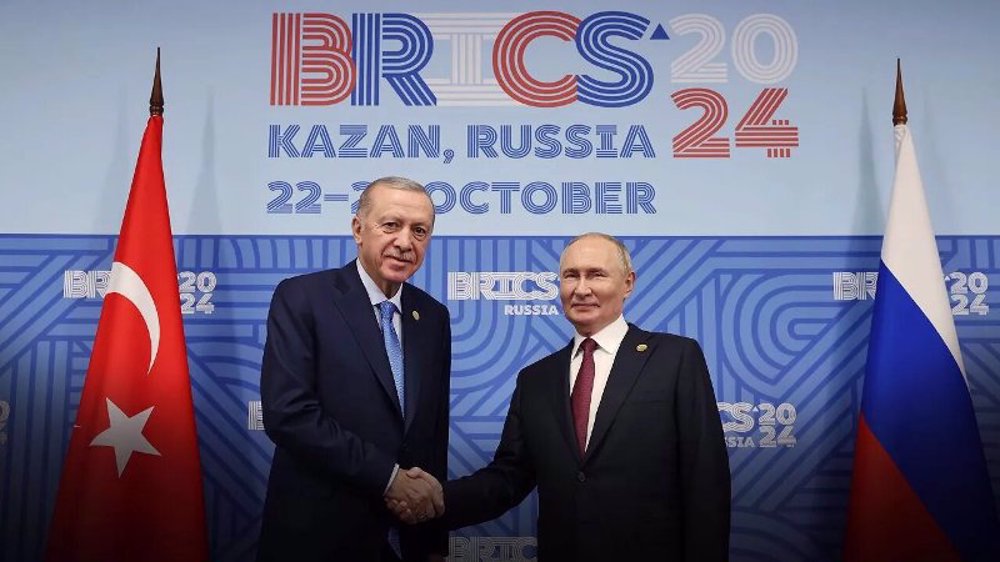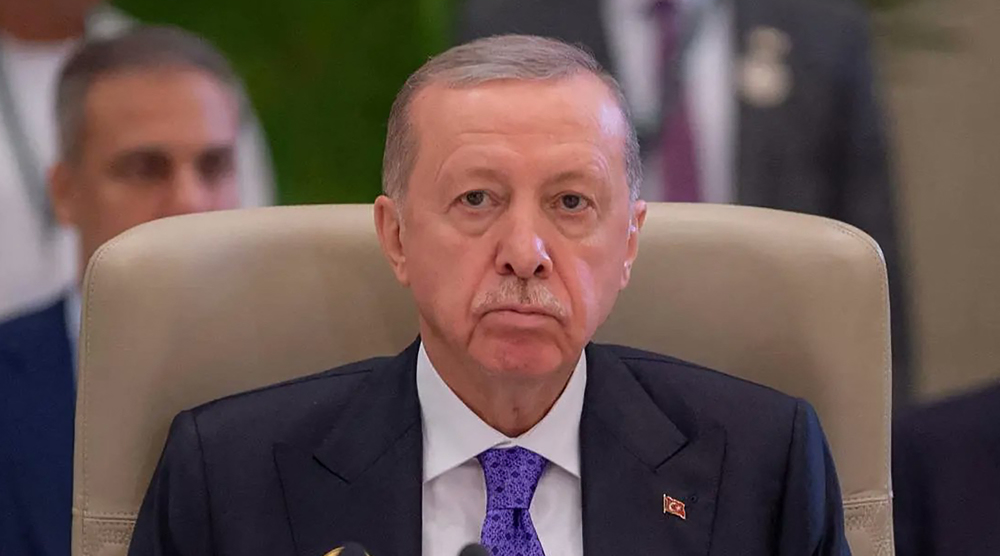Families of Mavi Marmara victims slam Israel-Turkey normalization
Families of the victims of Israel’s 2010 attack on a Gaza-bound aid ship have condemned an imminent normalization of relations between Tel Aviv and Ankara.
Israeli and Turkish negotiators are expected to meet on Sunday in Rome aiming to reach an agreement on normalizing relations which deteriorated six years ago.
Ismail Bilgen, whose father was among the victims of the raid, told the Middle East Eye online news portal that the restoration of ties “in the present form” is an “insult to the memory of his father and other martyrs."
Bilgen accused the Turkish government of giving up on its “principles and values” over the issue. “Restoring ties in this manner is unacceptable. The Israelis are acting like the compensation is an act of benevolence on their part rather than a punishment for their crimes.”
Israeli commandos attacked the Freedom Flotilla in international waters in the Mediterranean Sea on May 31, 2010, killing nine Turkish citizens and injuring about 50 other people. A tenth Turkish national later succumbed to his injuries.
“My father and his friends died trying to bring international attention to the inhumane blockade imposed on Gaza and to have it lifted. It now appears like their martyrdom will have been in vain,” Bilgen added.
Cigdem Topcuoglu, who lost her husband in the incident, also expressed opposition to the restoration of contact between Turkey and the Israeli regime, saying, “I am against it completely.”
Topcuoglu was herself on the vessel and held in the Israeli custody for a period.
In a separate statement, she further reiterated that in no way should an agreement be reached with “the Zionists … who have blood on their hands.”

In September 2010, Turkey suspended its military ties with Israel and expelled the Israeli envoy from Ankara over Tel Aviv’s refusal to apologize for the killing.
Since last December, however, the two sides have held several rounds of talks aimed at restoring the tense bilateral ties.
Unidentified sources said Saturday Israeli and Turkish negotiators will meet on Sunday in the Italian capital, Rome, in an effort to conclude a reconciliation agreement.
According to media reports and an unnamed Israeli official, if an agreement is reached, it would go before Israel’s so-called security cabinet for approval on Wednesday.
It will coincide with Israeli Prime Minister Benjamin Netanyahu and US Secretary of State John Kerry meeting in Rome to discuss stalled negotiations with the Palestinians on Sunday.
On Friday, Turkish President Recep Tayyip Erdogan met with Hamas head Khaled Meshaal in Istanbul where an Israeli lawmaker also attended a closed-door conference with Turkish officials on the same day.

Ksenia Svetlova’s visit to Turkey was the first such by a member of the Knesset, the Israeli parliament, since the flotilla incident.
During the conference, Turkish Foreign Ministry official Mesut Ozcan said that his country saw regional security concerns as a main factor in the prospect to restore ties with Tel Aviv.
“We see that what binds Israel and Turkey is this security problem,” Turkey's Anadolu News Agency quoted Ozcan as saying.
Turkey and Israel see eye to eye on the Syria conflict and seek the ouster of President Bashar al-Assad. Both sides are widely believed to be among the staunch supporters of the Takfiri terrorists active in the Arab state.
Ankara is suspected of actively training and arming Takfiri militants operating inside Syria and buying smuggled oil from them. Israel has set up hospitals near the border with Syria to treat militants injured in the fight with Syrian troops.
Among Turkey’s key conditions for the reconciliation accord with Israel are an apology and compensation, which are said to be largely met. However, the main hurdle to the agreement is reported to be the lifting of Israel’s blockade on the Gaza Strip.
According to the Turkish daily Hurriyet, the two sides have reached a compromise, which allows Turkey to send aid for Palestinians via Ashdod in the occupied territories rather than directly to Gaza.
Scores killed as Takfiri terrorists target Shia Muslims in Pakistan
Pezeshkian to US, Europeans: You are killing women, children
VIDEO | COP29: another climate failure?
ICC issues arrest warrants for Netanyahu, Gallant for war crimes
Israeli strikes kill 88 Palestinians in northern Gaza
American voters plainly rejected complicity in Gaza genocide: Iran FM spox
ICC should issue more arrest warrants for Israeli authorities over Gaza genocide: UN expert
Israel using AI weapons co-produced by India in Gaza genocide: Report















 This makes it easy to access the Press TV website
This makes it easy to access the Press TV website